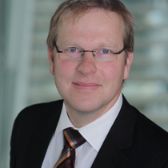The DialogForum 2019 at Danube University Krems focused on the challenges of migration and integration from 26 to 29 August. The experts from science, politics and practice resumed the mobility of highly qualified people, the independence of migrants as well as (un)voluntary return migration are central aspects deemed to be dealt with. The DialogForum, which was organized by the Department for Migration and Globalization for the eleventh time, positions itself as a networking platform for migration and integration actors.
Currently, the term "migrants" is associated more with people seeking protection beyond external borders than with qualified immigrants. More than "the greatest entrepreneurial challenge at present - according to the consideration of two thirds of German and Austrian companies - is the shortage of skilled workers", says Prof. Dr. Mathias Czaika, Head of the Department for Migration and Globalization at Danube University Krems. This applies not only to large companies, but especially to small and medium-sized enterprises, because "in Austria every third company plans to hire new employees in the upcoming year", says Czaika. In recent years, international competition for qualified workers has therefore intensified considerably. Czaika’s prediction is that "qualified specialists are the essential key resource for securing sustainable economic development".
Struggle for qualified specialists
In order to draw the attraction of highly qualified migrants to the Austrian job market, "labor market institutions need to be modernized, mobility improved, qualification requirements better anticipated and a comprehensive and forward-looking migration policy pursued", migration researcher Czaika notes. To only implement long-term recruitment instruments, such as a points system, permanent residence permits, financial incentives, transferability of social security entitlements or improved recognition of qualifications merely helps to close short-term employment gaps. Therefore an attractive, open living environment and long-term career prospects for qualified immigrants as additional migration policy measures, also play an important role in ensuring success in the international competition for key personnel.

”
„In Austria every third company plans to hire new employees in the upcoming year“
Univ.-Prof. Dr. Mathias Czaika, Head of the Department for Migration and Globalization
Migrants as self-employed persons
The general increase in mobility and migration as well as the restructuring of the globalized and digitized economy are increasingly bringing migrant entrepreneurship into focus. The majority of self-employed migrants in Austria come from Asia and Africa. However, this form of self-employment in Austria is "often not voluntarily decided", but rather a result of "limited access conditions to the first job market", explains retired Univ.-Prof. Dr. Gudrun Biffl. Even if migrant companies are not run more innovative in comparison to their national counterparts, migrants "often work more successfully in trade through the existing transnational networks", says Biffl. Prof. Monder Ram, BA MA PhD, of the Aston Business School, warns not to generalize migrant self-employment: Countries, ethnic groups, political and legal frameworks are differential. This so-called "super-diversity makes research extremely challenging," Ram notes.
Return as a solution strategy
Having arrived in the host country migrants are often confronted with unfulfilled expectations. Returning to the home country then becomes one of several solution strategies. But "without a common definition of return migrants, statistics and data are extremely divergent," says Dr Amparo González Ferrer of the Spanish National Research Council, complaining: "Therefore we lack the overall picture.” Furthermore, "political strategies for return migration are currently inefficient and ineffective," adds Dr. Marieke van Houte of Erasmus University Rotterdam. The majority of rejected asylum seekers in Europe had not returned because the "return programs do not address the challenges of returnees sufficiently enough", says van Houte.
Right of participation
Dr. Ernst Fürlinger of Danube University Krems points out that discussion about post-migrant society "rights, participation and being a member of the immigration societies" are in the foreground. "Access to citizenship and the right to vote", are therefore crucial measures for Prof. Rainer Bauböck of the Austrian Academy of Sciences. Austria has "relatively strong legal norms, long waiting periods, a restrictive attitude towards dual citizenships and also high financial hurdles for ordinary naturalization compared with international benchmarks ", which is why the "naturalization rates in Austria are very low in comparison to the EU", said Bauböck and "because Austria is an immigration country" he calls for a debate on this issue.
Contact
Mag. Michael Fasching, Bakk.
More information
Tags







